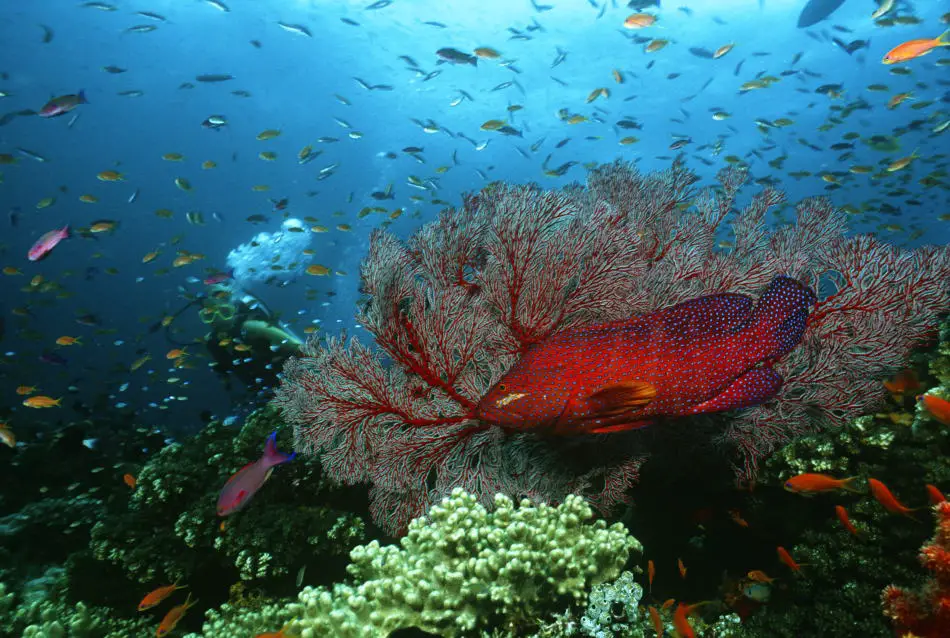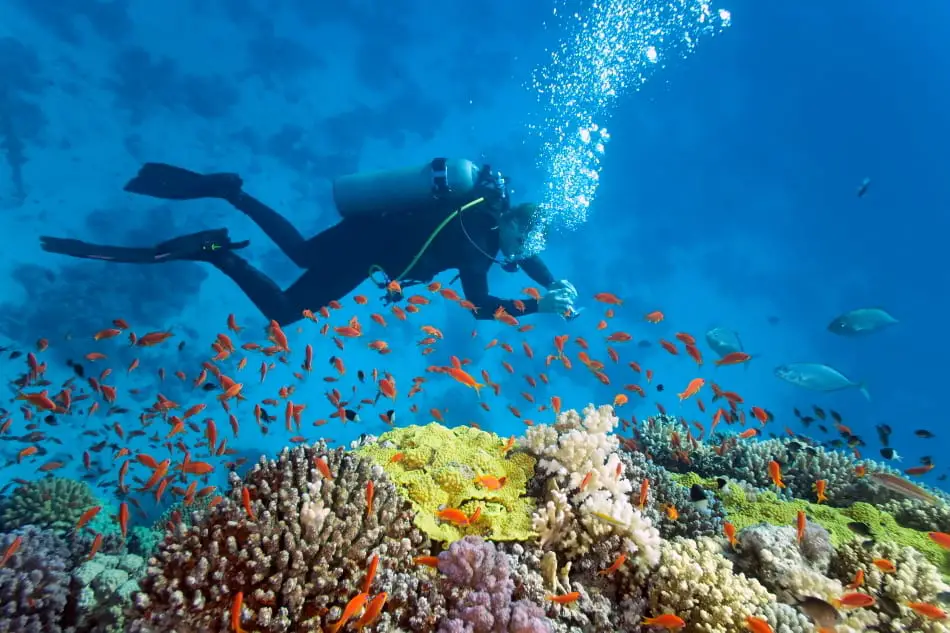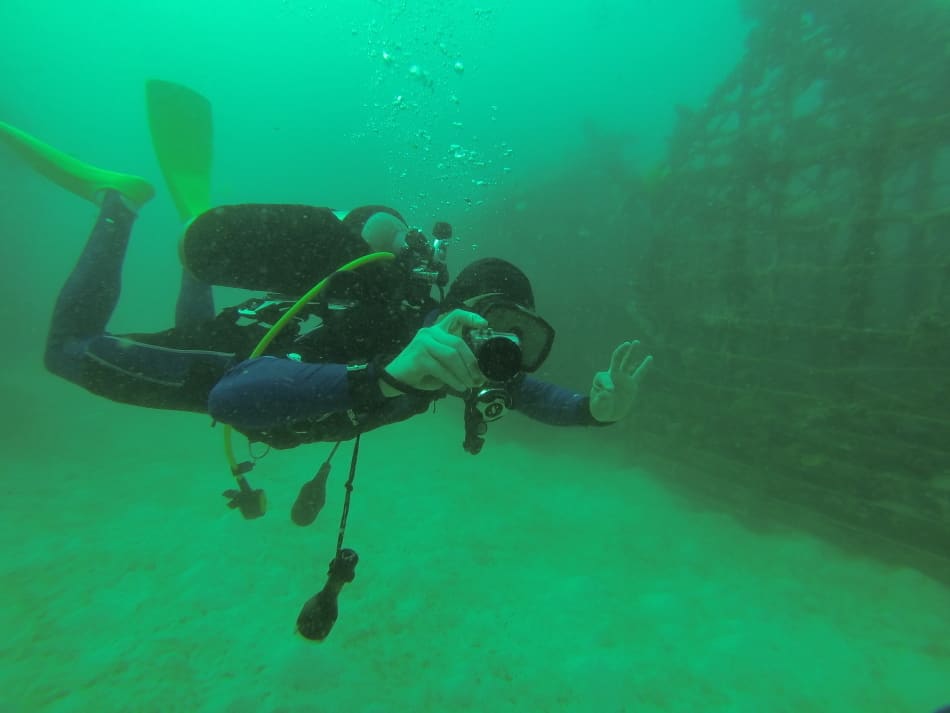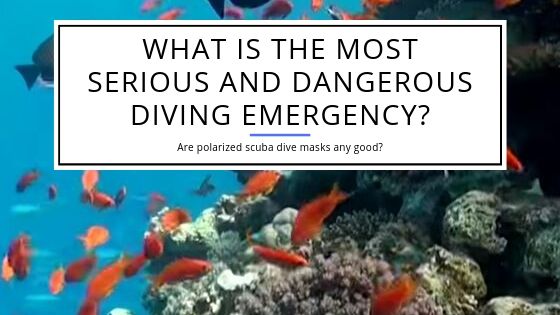What is the Most Serious and Dangerous Diving Emergency?
Scuba diving is a relatively safe activity as long as you follow the rules and necessary safety precautions. However, since we’re not meant to live underwater and need to use a gas tank to help us breathe, emergencies may occasionally arise.
Is Scuba Diving Dangerous?
Although scuba diving isn’t a dangerous activity, there are some risks involved. Problems may arise underwater due to faulty equipment or sudden health problems. Let’s take a closer look at the risks and dangers involved while scuba diving:
What are the Risks in Scuba Diving?
Drowning
Even though divers breathe underwater with the help of gas tanks, drowning is a potential risk, despite having plenty of oxygen left in the tank. A sudden panic attack or losing consciousness underwater are common causes of drowning while scuba diving. These problems may be the result of faulty equipment (such as a malfunctioning regulator) or any medical condition the diver may have.
This is why all dive agencies conduct a health test to screen divers before they’re ready to get in the water. Having a dive buddy or trainer with you also helps in case you have a panic attack or a problem with your equipment. They can help you get back to the surface in time. Make sure all your gear is intact before your dive. If something seems out of order, get it repaired or replace it before getting in the water.
Decompression Sickness
This is probably the most well-known risk associated with scuba diving. Since you breathe in compressed air when you’re underwater, absorbing too much of the compressed nitrogen can cause the build-up of gas bubbles in the body. This usually happens if you ascend too fast.
These bubbles cause joint pains, tissue damage and are overall quite unpleasant. It is important to keep an eye on your dive computer (or tables) and make decompression stops where required for the right amount of time. Avoid diving to lower depths if you are not physically fit enough or don’t have the necessary certification.
Nitrogen Narcosis
In order to dive to a depth of 25 meters or deeper, you need special training. This is because as the depth increases, so does the water pressure and the amount of compressed nitrogen entering your body. Too much nitrogen can have a laxative effect on the body and can slow down your senses and physical movement. This can potentially lead to decompression sickness, or in the worst case, drowning.
Aquatic Life
While most marine creatures don’t harm divers, they may suddenly become aggravated and attack. Getting stung by stingray or jellyfish is also possible. It is important to not do anything to disturb the animals or corals underwater, both to stay safe and to avoid causing them any damage.

What are Common Emergencies in Scuba Diving?
Here are some common emergencies that any diver may face mid-dive:
Impact of the Environment
If you’re diving in very cold water, the sudden impact on your skin can cause you to hyperventilate and potentially drown.
Although divers wear dry suits, etc., to stay warm underwater, heat loss from the body is still possible, especially if you dive more than once a day. It may also lead to “immersion diuresis”, a condition that causes dehydration, syncope and arrhythmias.
Barotrauma
Barotrauma is characterized by pain in the ears and sinuses, caused by the compression of the scuba mask against the face due to water pressure.
Divers are trained to equalize pressure in their ears when they’re underwater. This is because an imbalance in pressure can damage the ear drum and cause pain and internal bleeding. Water entering the ears may also cause vertigo.
Ear damage can occur both during ascent and descent and if it becomes very severe, it may lead to permanent loss of hearing. If you suspect that you have barotrauma, do not enter the water until your physician has given you the green signal.
The Lungs
If a diver holds their breath during ascent (learn about scuba breathing techniques), the air expands inside the body and can cause severe internal damage, such as rupturing a lung. Arterial Gas Embolism (AGE) may occur if these gas bubbles are forced into the bloodstream. Sometimes, the symptoms of AGE are noticed a few minutes after the dive. These include chest pains, suffocations, dizziness, foaming at the mouth (or blood) numbness, paralysis, etc.

Are There Serious Medical Issues when Scuba Diving?
Before scuba diving, divers must undergo a health check. This is to ensure that divers do not have any problems, such as asthma that can cause breathing problems underwater.
Although scuba diving doesn’t directly cause any problems, such as joint pains or breathing difficulties, medical problems may still arise. These include:
- Joint pains (and in more serious cases heart trouble) due to decompression sickness
- Squeezes that cause pain in the ears. These result from the water pressure pushing your scuba mask against your ears.
- Scrapes or other minor physical damage due to a marine animal attack or grazing against something sharp such as a shipwreck.
What is the Most Dangerous Emergency when Diving?
The most dangerous problems due to scuba diving include lung barotrauma and decompression sickness.
Barotrauma occurs when gases expand inside your lungs as you ascend. For some divers, this can even cause a lung to collapse. Some gas bubbles may also enter the bloodstream and cause chest pains, breathing difficulties and severe problems, such as a stroke.
We’ve already covered how decompression sickness occurs and what its common causes are. Apart from joint pains, decompression sickness may also lead to more serious problems, such as damage to the spinal cord, brain and lungs.

Can You Die from Scuba Diving?
Certain emergencies, such as nitrogen narcosis, barotrauma and faulty equipment, can hinder your breathing underwater. If you are unable to reach the surface quickly, death is a possibility.
In order to avoid such dire situations, it is essential for divers to be in good health, have properly functioning gear and a diving partner when they get in the water.

